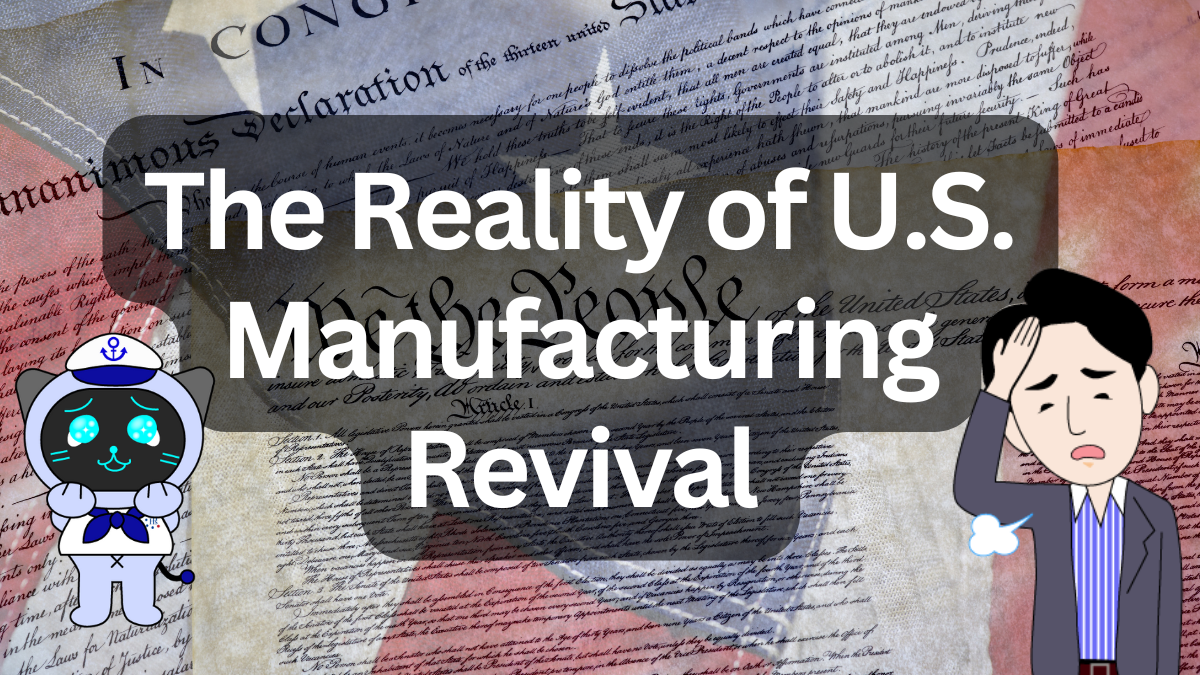Posted on: August 6, 2025 / Last updated: August 6, 2025
Is U.S. Manufacturing Really Rebounding? Tariff Burdens and Empty Investment Promises

This time, we’ll explore the question: “Is the revival of U.S. manufacturing truly underway?”
CONTENTS
U.S. Stock Market at Record Highs, But…
Let’s start by looking at the current state of the U.S. economy.
In Q2 2025, net profits of U.S.-listed companies doubled expectations. The stock market has returned to record-high territory.
However, it’s only the tech and finance sectors that are thriving.
Among S&P 500 companies, technology saw +20–40% growth, and finance grew by +10%.
Meanwhile, manufacturing, consumer staples, and materials showed negative growth, highlighting a clear disparity.
Why Is Manufacturing Lagging? “Tariffs”
One major reason is the Trump administration’s tariff policy.
For instance, P&G expects to incur around $1 billion in annual tariffs.
Though it’s said that “tariffs are paid by exporters,” the actual burden falls on U.S. companies.
Who Really Pays the Tariffs?
According to Goldman Sachs, there’s a high probability that U.S. firms bear 80% of tariff costs.
Import prices remain unchanged, meaning exporters aren’t cutting prices—thus, U.S. importers are taking the hit.
Passing Costs to Consumers Isn’t Easy
Hasbro stated that “it takes 5–8 months for products to hit the shelves” and “prices will rise in the second half of the year”. Nike also admitted “price hikes are inevitable this year”.
However, weak consumer spending makes it difficult to raise prices.
Foreign Investment Isn’t Filling the Gap
The other pillar, foreign direct investment, also faces uncertainties.
Although the EU, Japan, and South Korea have “pledged” billions, actual investment is far lower.
Actual FDI in Q1 2025: $52.8 billion
Pledged investment: $183.1 billion
In short, we’re seeing many “empty promises” of investment.
Conclusion: Still Far from Revival
“Manufacturing revival” remains a slogan with little substance.
Rising costs, difficulty in passing on prices, unrealized foreign investment, and inflation risks—all point to the fact that a true U.S. manufacturing comeback will take time.












